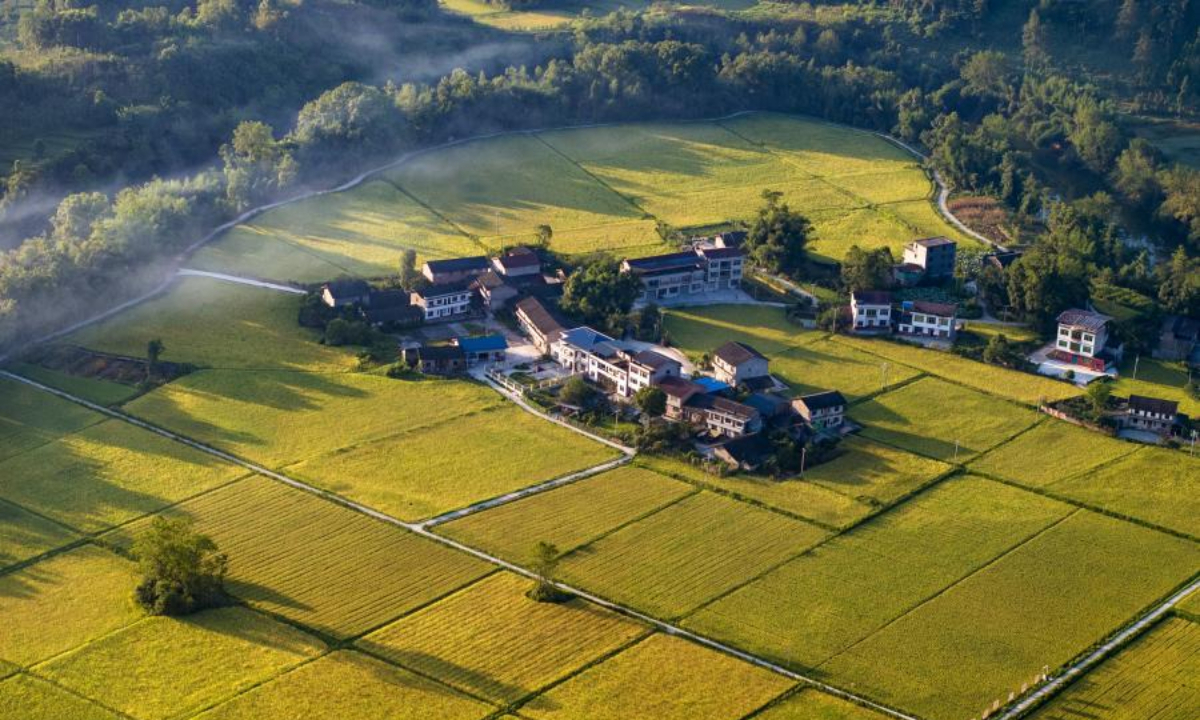China’s early-season rice output to increase slightly, stabilizing annual grain output: NBS

Rice paddy fields gleaming under the sun offer an idyllic scenery at Dazhu County of Dazhou City, southwest China's Sichuan Province in August. Photo:China News Service
China's early-season rice yield in 2023 will rise about 0.8 percent year-on-year to 28.34 million tons, sampling data from 10 provinces and regions released by the National Bureau of Statistics (NBS) showed on Wednesday.
China achieved another bumper summer grain harvest in 2023, with the summer grain output totaling 146.13 million tons, according to the NBS.
The summer grain harvest lays a solid foundation for stabilizing annual grain production amid a complex global environment and increasingly extreme weather conditions, said the NBS. Experts said that China can ensure its grain security under the current circumstances.
Early rice production reached 5.99 kilograms per hectare, up 1.2 percent year-on-year, according to the NBS data.
During the growing season for early rice, weather conditions in the main sown areas remained generally conducive to the growth and production of the crop. Natural disasters had a relatively mild impact this year, and higher average temperatures have led to an increased estimate of production in southern China.
The grain yield in early-season rice will contribute to a positive outcome for this year's total harvest, Li Guoxiang, a researcher at the Rural Development Institute of the Chinese Academy of Social Sciences, told the Global Times on Wednesday.
China's overall grain output has remained stable despite the impact of extreme weather, Li noted, and the annual harvest will remain steady.
India, which is the second-largest rice producer in the world, in July announced a ban on exports of a particular variety of white rice to ensure its domestic availability and allay price rises, the Xinhua News Agency reported.
Other countries including Russia and the United Arab Emirates subsequently banned rice exports, according to media reports.
Amid a complex global environment, Li stressed that China is self-sufficient in rice, but India's export ban may further drive up international prices.
China's early-season rice planting area stood at 4.733 million hectares, down 0.5 percent from last year, according to the NBS.
The agency noted that China's early-season rice sown areas had remained largely stable due to policies such as national rice subsidies, one-time support for grain farmers and other measures to put a floor under farmers' incomes.
Global Times
